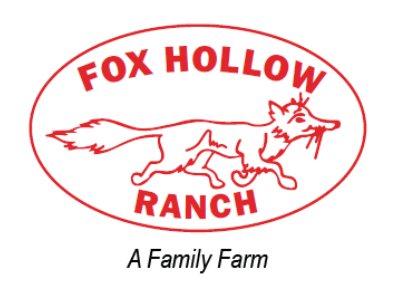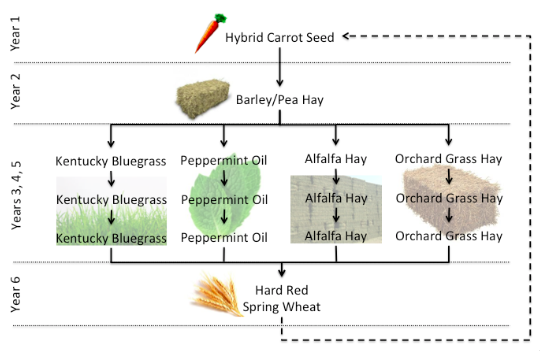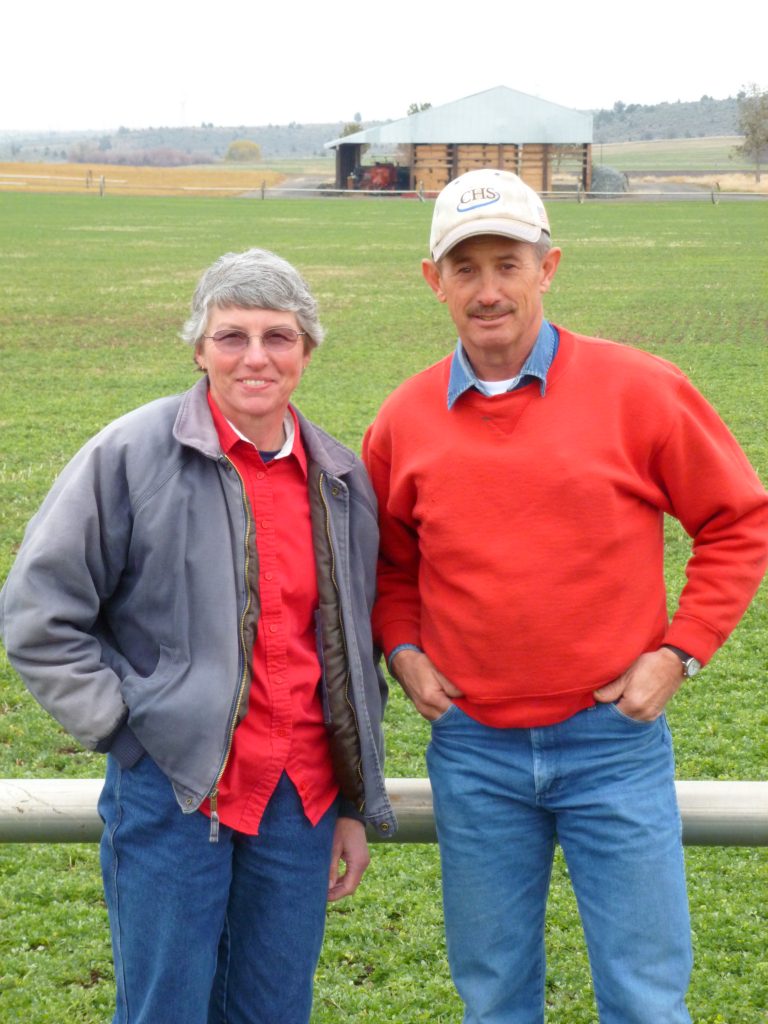
Sustainable agriculture is more than a buzzword at Fox Hollow Ranch…it’s a family lifestyle. Martin and Nancy Richards operate Fox Hollow Ranch in North Unit Irrigation District raising carrot, parsley, and spinach seed, peppermint oil, Kentucky Bluegrass seed, hay and grain on 640 irrigated acres. People, planet, and profits are all important parts of the continued viability of this operation.
Son Kevin and his wife Natalie joined the farm partnership in 2013 and are raising their growing family (3 boys and twins on the way) on the farm. Son Gary earns his livelihood off the farm but has chosen to raise his 3 girls on the farm. These family members and their employees count on a profitable operation to provide economic security for their families. They in turn contribute both economically and socially to the Madras community and beyond.
A willingness to react quickly to changing weather, technology, and societal values is vital to maintaining a viable operation. The Richards family is willing to invest in water conservation, soil health, and innovative new technology in the short term knowing they will payoff both financially and environmentally in the future. Fox Hollow Ranch may have a small role in feeding and clothing the world in a sustainable manner but they take this responsibility seriously. Martin enjoys sharing his love of farming with his sons and grandchildren and is looking forward to turning a sustainable operation over to them someday.
Nancy is on the Coalition for the Deschutes board, and Fox Hollow Ranch is a Shared Vision partner. Nancy and Marty recently hosted the Shared Vision “Picnic at the Pond,” where this information about their sustainability practices was presented.
Fox Hollow Ranch – Sustainability Practices
Weed/Pest Control
- Manage crop rotation to optimize weed control, reduce chemical needs
- Diversify chemicals with multiple modes of action
- Biological pest management:
- Use predator mites in place of insecticides
- Use mustard cover crop for natural insecticidal properties
- Mechanical and manual weed removal when appropriate and feasible
- Band spray and drip irrigation/chemigation to reduce and target chemical use
Soil Health
- Manage crop rotation for diversity and soil health
- Routine soil nutrient testing
- Integrated nutrient program (Biotic, manure, compost and synthetic fertilizers)
- Grid sampling and variable rate application
- Plant cover crops to enhance soil microbes and build organic levels
- Incorporate plant residue as frequently as possible (minimal burning)
- Band spraying and drip application of fertilizers
- Minimal-till practices when appropriate and feasible
Water Conservation & Efficiency
- Manage crop rotation to balance water demand
- Spring plant crops to respond to water supply and increase flexibility
- Buried pipe for all on-farm water transmission
- Expanded on-farm water storage
- Drip irrigation
- Flow control sprinkler nozzles
- VFD (Variable Frequency Drive) pumps
- Wireless/cellular pump monitors
- Increase water holding capacity of soil with cover crops, crop residue and manures
- Capture of excess and run-off irrigation water


Thank you for practicing sustainable agriculture and protecting our environment. You are awesome!